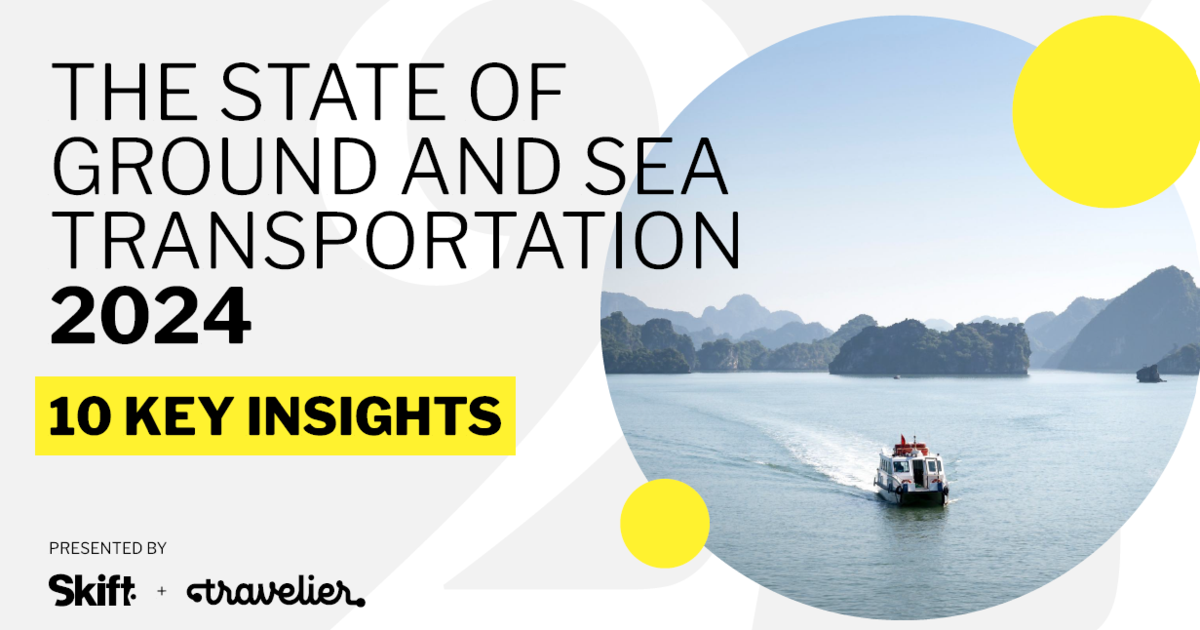
Intercity transportation travel-tech specialist Travelier has partnered with Skift to publish the world’s first official market sizing report for ground and sea transportation.
This brand-new research highlighted a $198 billion industry within the $3 trillion global travel market, marking the prevalence of an often-overlooked segment of the travel industry.
The report defines the market around ground and sea transportation to include buses, ferries, trains, and transfers for intercity travel, not urban metros or ride-hailing services.
With over 170,000 bus, ferry, and train stations globally – far outnumbering airports – ground and sea transportation is a critical piece of the travel puzzle.
The firm believes this subsector of travel remains underrepresented in media and industry discourse and so wanted to address this through by producing the report.
Travelier CEO and co-founder, Noam Toister, said: “Ground and sea transportation is essential to the connected trip.
“It bridges the gap between flights and destinations, unlocking hidden gems that are otherwise inaccessible. This report provides much-needed data to support the sector’s digital transformation.”
It found that ground and sea transportation accounts for $198 billion, surpassing other travel sectors such as short-term rentals ($124 billion), car rentals ($104 billion), and cruises ($66 billion).
Despite 82% of travellers preferring to plan trips online, this sector remains predominantly offline still, with only 24% of bookings made digitally.
The report identified massive opportunities for online platforms to consolidate market share and streamline the booking process.
While it found Asia leads as the fastest-growing region for ground and sea travel, with nearly all Chinese travelers familiar with online booking platforms.
South America, Africa, and the Middle East also present substantial opportunities for digitization.
It’s other major outcome of the research found that train travel dominates the market at $102.2 billion, followed by bus ($77.4 billion) and ferry ($18.4 billion).
Regional variations highlight buses’ dominance in areas with less-developed train infrastructure, such as Africa and Asia (excluding China and Japan).
The report underscored the sector’s rapid digital adoption, with online booking growth outpacing overall market expansion.
Operators are recognizing the increasing demand for digital solutions, mirroring trends seen in other travel verticals like airlines and hotels.
“This research provides the foundation for the sector’s transformation,” Toister added.
“We’re witnessing the start of a digital revolution in ground and sea transportation, with platforms like Travelier Connect enabling seamless integration for operators and partners worldwide.”






